Refrigerated Containers Monitoring & Management
101 - Refrigerated Containers
Reefer container is short for the refrigerated container, also abbreviated as RF container. A reefer container is a shipping container that remains its cargo at a regulated, cool temperature. A reefer usually works at a temperature range of -30°C and +30°C and handles frozen, chilled, or cold goods.
Refrigerated containers play a critical role in the global supply chain. In this post, we explain everything you need to know about how reefers work and their components and dimensions, but also their specifications, standards and how to stow a refrigerated container properly.
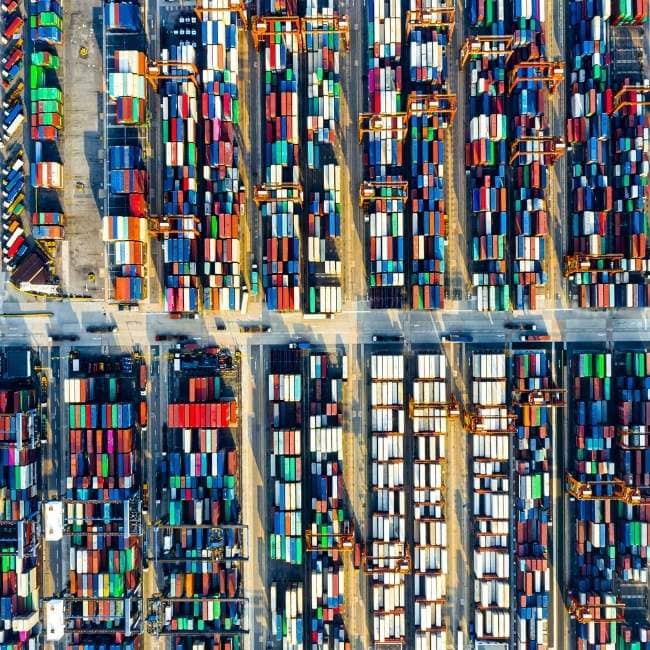
Smart Containers – Merging McLean’s and Berners-Lee’s inventions
Some people may know Malcom McLean – the inventor of the freight container – but who is Berners-Lee? Tim Berners-Lee developed the basic idea of the World Wide Web (WWW).
More than 60 years after the invention of the sea container and the predecessor of the WWW both technologies rule the world. Both technologies are valued as equally disruptive for mankind as the invention of the letterpress by Johannes Gutenberg in the 15th century.
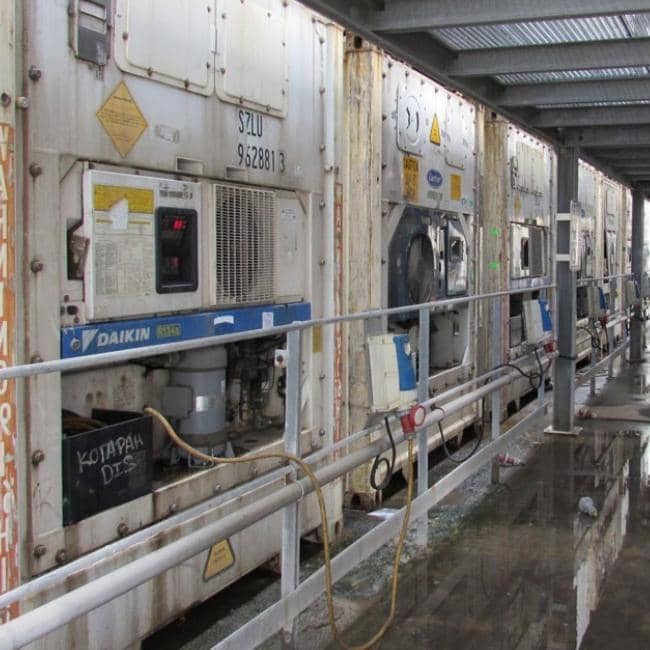
Refrigerated containers: Monitor your energy consumption
Decarbonisation starts and ends with energy consumption. But where to start? Monitoring energy usage of refrigerated containers gives you a starting point to evaluate before investments are made. That's clever.
Monitoring of refrigerated containers must include monitoring energy consumption as well to learn about processes, maintenance and in-time repairs of reefers. Energy efficiency of reefer operations is only possible when consumption is monitored and managed in an intelligent way.
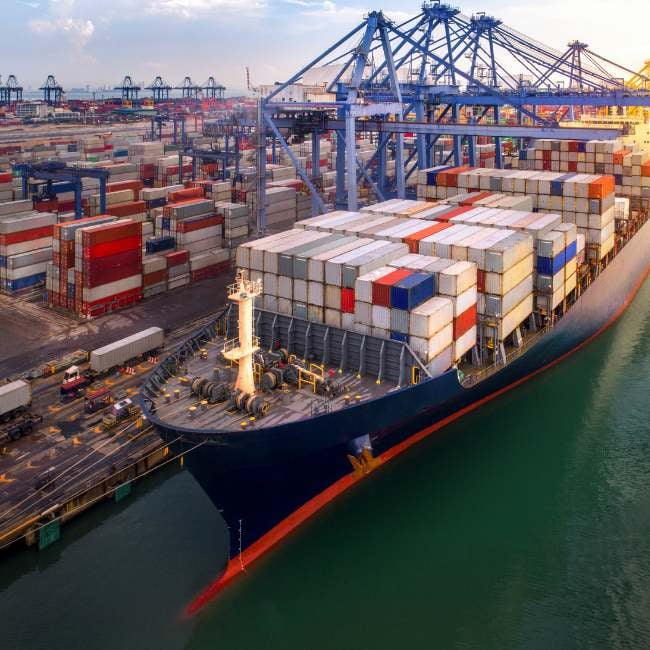
Power Consumption and Refrigerated Containers: How Long Can You Afford Not To Know?
For a while, energy consumption wasn't a big issue, or at least wasn't seen as such: As long as the environmental impact was not immediately noticeable, energy costs and needs were manageable, and the economy flourished, the topic was present, but not urgent. However, those circumstances have changed, and radically so.
Due to the recent cost explosion, container ports' energy consumption is increasingly becoming operators' focus.
In this blog post, we discuss why it is essential to keep a close eye on the power usage of refrigerated containers and how this enables financial savings benefits.
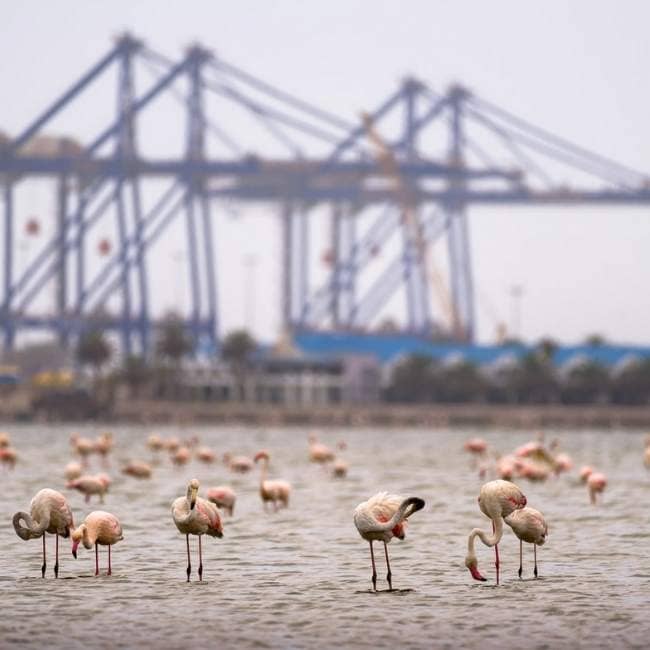
Refrigerated Containers in Walvis Bay: to be or not to be
Economically, fishing is the main thing in Namibia, besides mining. The nutrient-rich cold Benguela current along the Namibian coast supports a vibrant fishing industry that harvests fish, lobsters and crabs in an area of 1,570 km and 200 nautical miles westwards into the Atlantic Ocean, from the northern border of South Africa to the southern border to Angola. That's a long coastline, home to seal colonies and schools of flamingos.
That's why refrigerated containers play an important role in Namibia's fishing industry. 90% of the catch is exported, partly canned, partly refrigerated. The port of Walvis Bay constitutes a vital link in exporting fish and fish products from Namibia to a global market.
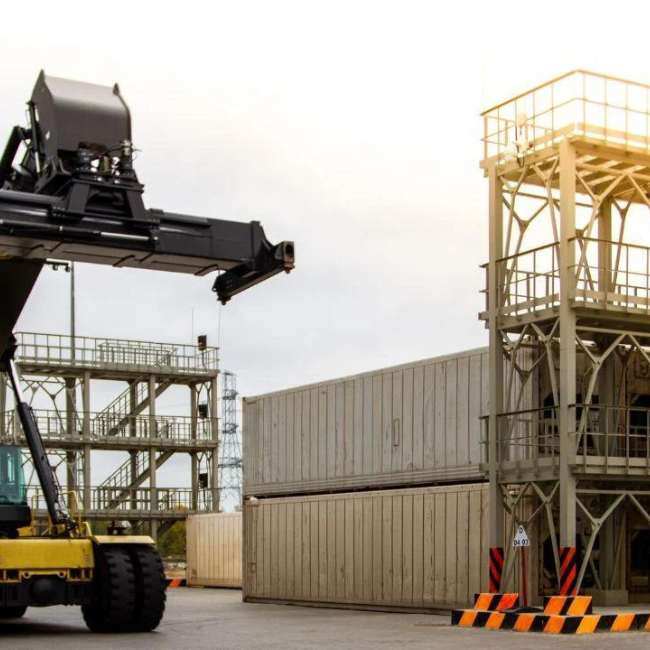
Refrigerated Container Damage Claim
The cold chain plays a crucial role in the global supply chain, and its importance will only increase in the future. This makes it all the more important to reduce incidents to refrigerated containers and the resulting container damage claims.
A central element of these efforts is automated systems for monitoring the temperature inside the reefers.

Supply Chain of Pharmaceuticals: Sensitive, expensive, high-tech
Medicine, and with it drugs, goes far back into human history. But it was only with the uniting of single apothecaries, their collaboration with chemical laboratories, significant discoveries and, last but not least, the possibilities of mass production and refrigerated transport that we were able to create the healthcare environment as we know it today.
In this article, we discuss the complexity of the supply chain of pharmaceuticals.
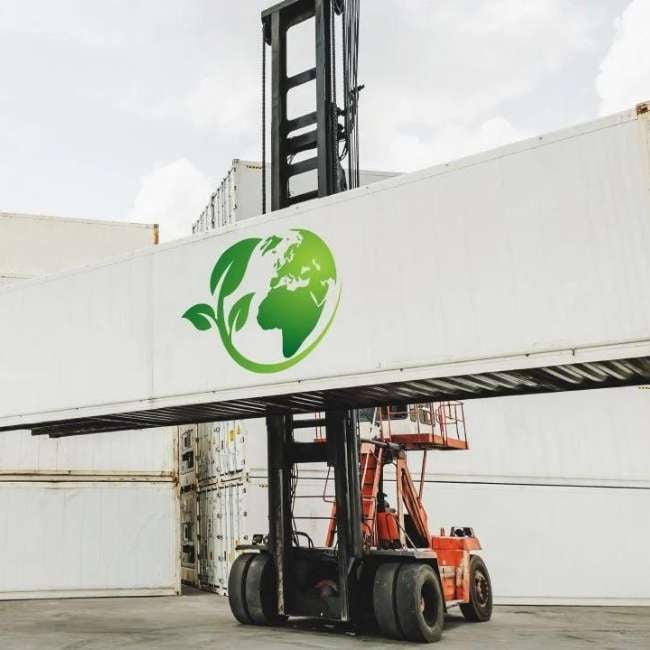
Refrigerated Containers and a Sustainable Cold Chain
Discover the vital role of sustainable cold chains in our journey towards a greener future. From the early days of frozen foods to the modern challenges of environmental impacts, learn how innovation and conscious choices can reshape our world. Dive into the article, "A Sustainable Cold Chain for a Cooler Tomorrow", to explore how we can balance freshness with responsibility and shape a sustainable, eco-friendly tomorrow.
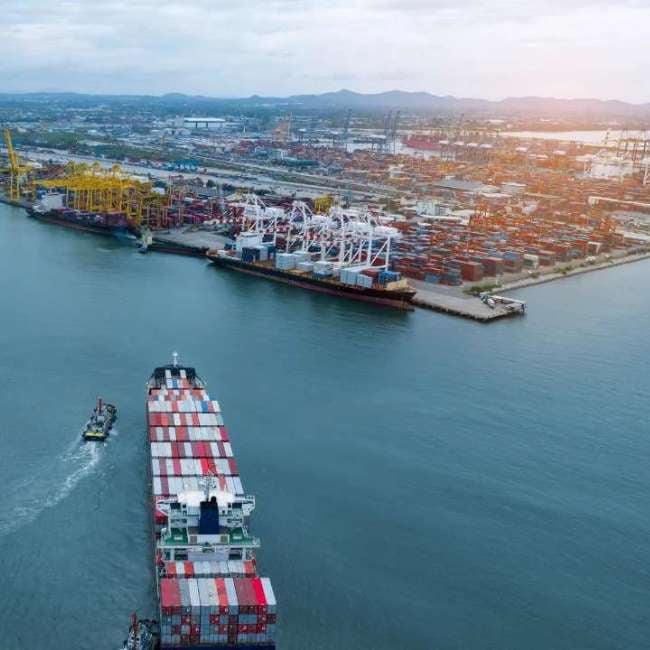
Refrigerated Containers Service - Market Outlook 2024
The global reefer container market is significantly increasing at a CAGR of 8.8%. The Asia-Pacific (APAC) region, in particular, is a major force in this market, accounting for 60% of the global share in 2023. Driven by economic growth, increasing demand for perishable goods, and technological innovation, APAC's dominant market position is underpinned by its significant contribution to global trade, the challenges it faces, and the opportunities it presents for the future of temperature-controlled logistics. In this blog post, we discuss the reefer service market for the coming years.

Refrigerated Containers and Supply Chain Africa
Malaria remains one of the most devastating infectious diseases, particularly in sub-Saharan Africa. Despite significant advances in prevention, diagnosis, and treatment, malaria continues to threaten and claim lives.
The recent introduction of malaria vaccines represents a historic milestone. Now, it is crucial to get them to all affected African countries quickly and safely. In this article, we want to study the fundamental role of reliable refrigeration during transport and how reefer monitoring supports this.

Refrigerated Containers and Saudi Arabia
Saudi imports and the country's cold chain infrastructure are rapidly evolving, driven by the kingdom's need to manage temperature-sensitive goods in a challenging desert environment. From food to pharmaceuticals, industries across the board rely on cold chain systems to maintain product integrity, especially with rising urbanisation, population growth, and the expansion of sectors like healthcare and e-commerce.
This article covers the status of the kingdom's cold chain and its challenges. Read on to learn more about the key factors driving changes and how the cold chain is critical to the kingdom's Vision 2030 ambitions.

Refrigerated Containers in the Caribbean
The Caribbean export industry is dynamic and diverse. Products such as tropical fruits and seafood play a central role in trade. However, the success of these exports depends heavily on the strength and reliability of the cold chain—the complex logistics network that keeps these goods in precise temperature ranges to maintain their quality.
With the increasing demand for high-value, perishable goods, numerous challenges must be overcome to remain competitive. Cold monitoring automation is one of the most transformative tools available today, which significantly strengthens cold chain resilience. Learn how this technology can reshape the future of cold chain logistics in this world region.

Refrigerated Containers in the Middle East
The Middle East is an important hub in global trade, as it connects three continents: Europe, Africa and Asia. Admittedly, the extreme climate with high temperatures and fluctuating humidity poses very special challenges for the cold chain.
At the same time, due to rapid population growth and changing consumer habits, the demand for fresh food, new medicines and other perishable goods in the supply chain Middle East is constantly increasing.
Continuous monitoring of refrigeration conditions is essential to do justice to all of this and to maintain and even improve the quality of transport.

Refrigerated Containers and Fruit Export
The journey of fresh fruit from the sun-drenched orchards of Brazil to the supermarket shelves of Europe is a logistical feat, requiring precision, innovation, and a seamless cold chain. The South American country, the world's third-largest fruit producer, is steadily expanding its presence in global exports and supplies European markets with mangoes, papayas, and melons.
Ensuring that cargo arrives in perfect condition despite long transport times and strict import regulations is no easy challenge. This article explores how exporters guarantee quality across thousands of kilometres. And which technologies are shaping the future of the Brazilian fruit trade?

Refrigerated Containers and Kiwis
Before a kiwi ends up on a breakfast table in Tokyo or in a smoothie in Seoul, it undergoes a delicate, cold journey. Grown in New Zealand's volcanic soils under temperate skies, the fruit is a surprisingly demanding traveller, requiring precise harvesting, refrigeration, and constant monitoring across orchards, ports, and oceans.
Timing, teamwork, and temperature. A single mistake can mean the difference between the top-notch product and rejected cargo. In this article, we trace the cold chain of the New Zealand kiwi and discover why the journey is as remarkable as the fruit itself.

eco-friendly Refrigerated Containers
Reefer transport everything from fresh fruit and frozen seafood to life-saving vaccines around the globe. However, refrigerating the cargo is energy-hungry and carbon-intensive.
The industry is at a tipping point. Advances in remote monitoring, electrification, and sustainable refrigerants are creating new opportunities, transforming reefer management from a necessary burden into an opportunity for change. Here's how terminals can lead this transformation.
Cold Chain and Refrigerated Containers Logistics
Food products, pharmaceuticals and electronic equipment are valuable, temperature-sensitive cargo. But a cold chain to assure freshness and safety is fragile and only as strong as its “warmest” link. Cold chain logistics involves the transportation of temperature-sensitive products along a supply chain using refrigerated containers and packaging solutions from harvesting and producing to the hands of the end-consumer.
We created this eBook to provide an introductory, yet complete overview of the stages, processes and technologies of the modern world cold chain logistics.
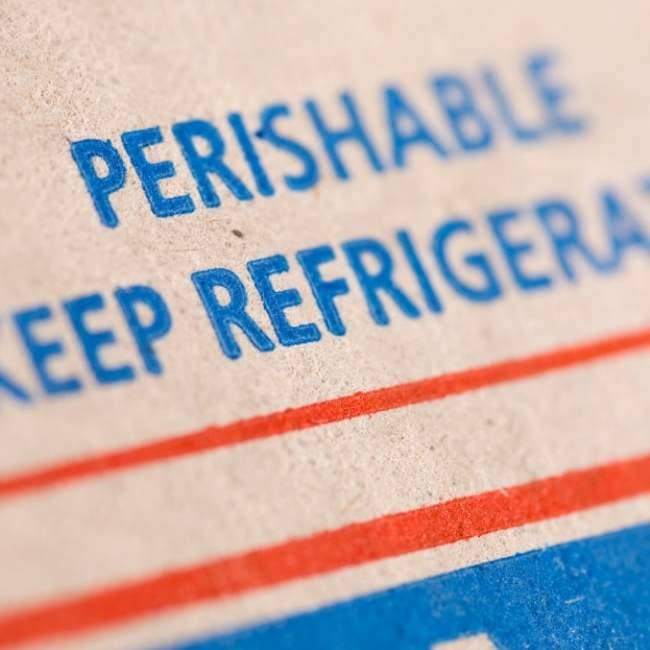
Fewer claims: Automated refrigerated containers monitoring
In most ports, terminal automation primarily focuses on container handling while the monitoring of individual containers is done manually. Energy monitoring is key in keeping the temperature of perishables at the right levels, but it is a very labor-intensive job as the temperature setting and monitoring are often done manually. Lack of available labor as well as human errors often result in temperatures not staying at the required levels and fresh produce going to waste.
According to international transport insurer TT Club, refrigerated container incidents have been one of the leading causes of insurance claims in the transportation industry over the past three years with human error being the cause in a majority of cases.
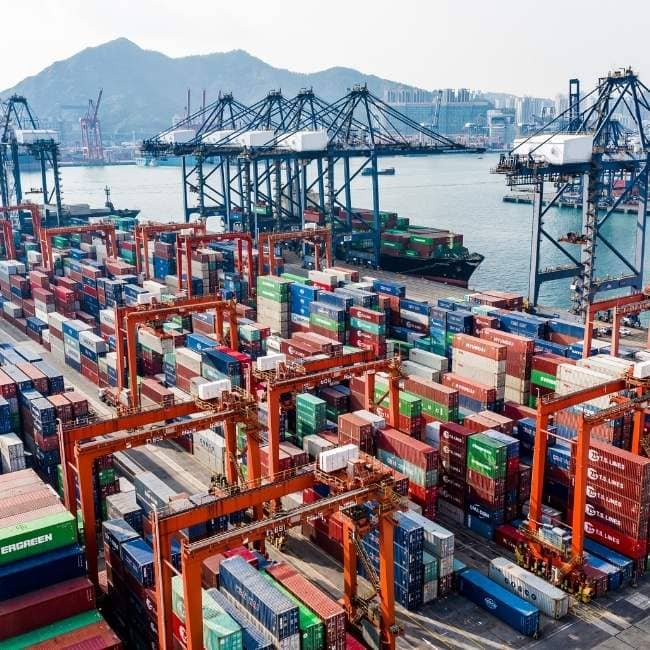
How real-time refrigerated container information impacts safety and productivity
Container Terminals are hazardous places: Dockers may be dealing with a variety of vessels, people and weather under the pressure of a tight timetable. These ever-changing circumstances lead to ever-changing risks. Companies must address and manage these risks accordingly. At the same time, operations in the yard must continue.
As human errors occur - every human movement in a container yard is a potential incident, automating services is not only a reasonable approach to maximize safety, but guarantees continuous crane operation.
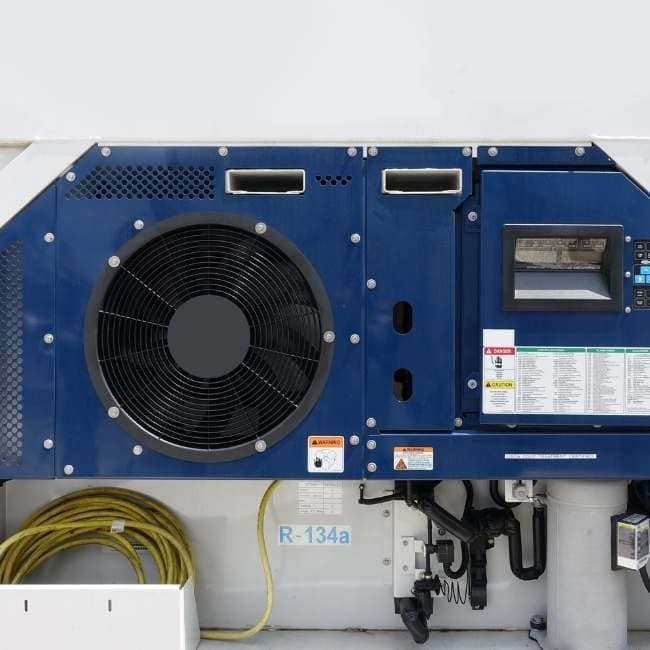
Refrigerated Containers: Optimize efficiency and safety
Refrigerated containers are shipping containers used in intermodal freight transportation to move temperature-sensitive cargo, can control temperature and atmosphere, relies on external power, and is handled by an internal controller.
As refrigerated containers are a vital part of the global supply chain, you don't want to break the cool chain at any point in the supply chain. However, reefer cargo is temperature-sensitive and spoiling it comes with high costs.
Reefer operations in a container terminal are labour-intensive and need constant monitoring and management. An automated reefer monitoring and management solution gives you total control of your terminal reefer operations.
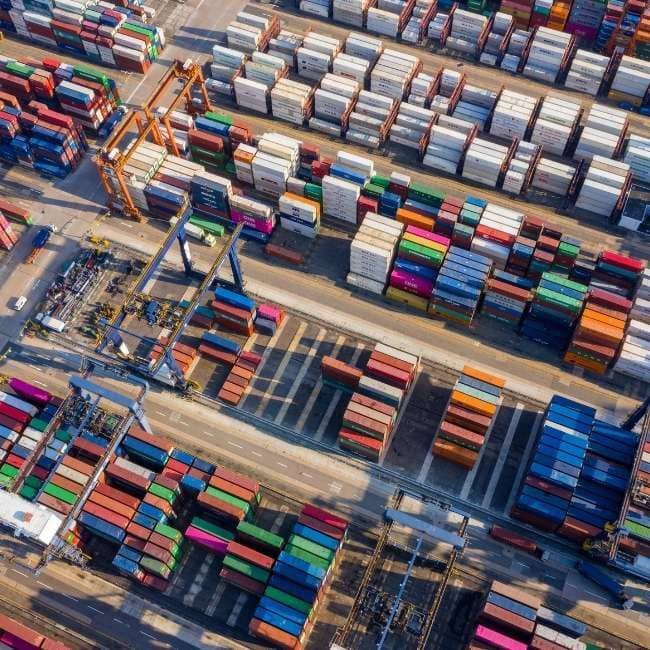
Refrigerated Containers Productivity
As the pressure in the global supply chain increases and container terminals are the vital gateways for the global economies, terminal productivity becomes focused on providing reliability and stability to the supply chain and improving their output considerably. As a result, productivity is in focus once more and more than ever.
With insurance claim costs, accidents, and terminal slowdowns, your reefer productivity will suffer but also trust and future business can linger for years. Automatic reefer monitoring and management is a proven solution protecting your and your customer's assets.
Factors like space, energy, workforce, processes, spoiled cargo, and container handling equipment- will directly influence your reefer productivity.
Regarding refrigerated containers, automation offers higher productivity in several aspects: Insurance claims, human errors, personnel safety and terminal equipment.
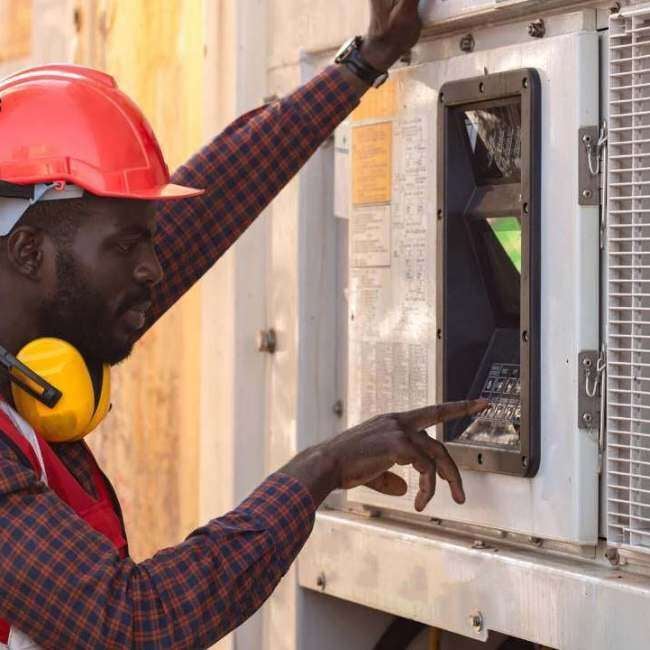
Refrigerated Containers Alarms
The demand for temperature-controlled transport continues to rise, with refrigerated containers taking the lead. The safety of this cargo, which is so vital for people's supplies and health, depends on maintaining optimal temperatures and ambient conditions.
The ability to maintain these depends, in turn, on the quality of the systems that monitor them and alert the personnel responsible for the transport in the event of deviations. This article gives you an insight into the importance of the reefer alarm for the cold chain.
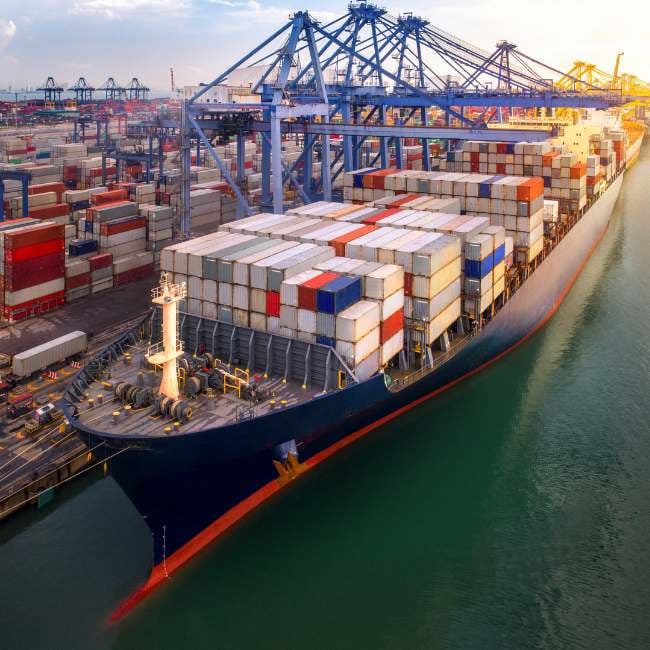
Refrigerated Containers Power Supply
In order to be able to implement effective saving measures, it is inevitable to know exactly which areas and units in the container terminal use which amounts of electricity and at what times.
The blog post shows what to look out for when choosing a monitoring solution.
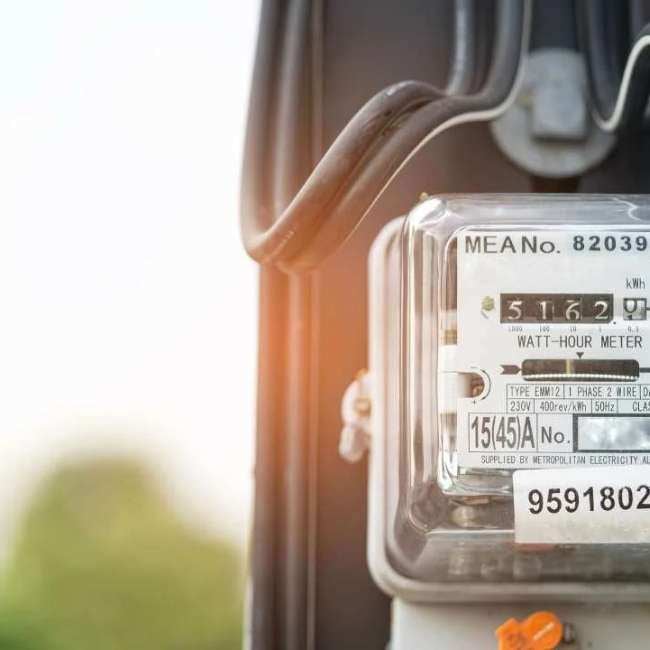
Refrigerated Containers Energy Saving
What if every watt a reefer unit consumed was as visible as the trail they leave in the global cold chain? The picture might not be as cool as the cargo. Reefers are essential to the cold chain, but their use comes with a significant operating cost: energy consumption. From older models that guzzle a lot of power to newer units optimised for efficiency, the energy requirements of reefer containers remain a pressing challenge for terminal operators and shipping companies alike.
This article explains how IoT can revolutionise energy management for reefer operations. Real-time information, predictive maintenance and advanced technologies such as machine learning powered by IoT solutions enable energy costs to be reduced without compromising performance.
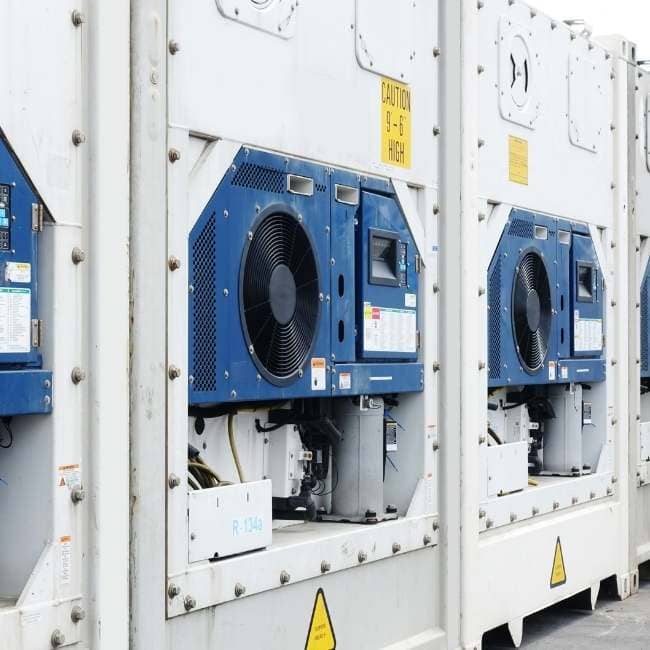
Refrigerated containers: Automated logistics in ports
Reefer Logistics, also known as the cold chain, has become an essential part of carriers' strategies to connect producers and consumers within one chain. The aim is to give customers shorter overall lead times and more predictable costs to calculate. In addition, there is the promise to store and transport perishable goods at the right and consistent temperature throughout the complete end-to-end supply chain.
A refrigerated container typically circles the world four times each year under extreme handling and weather conditions. Over a typical lifecycle of 15 years, a reefer sees many vessels, ports and others means of logistics. Handling and maintaining reefers is an uphill task. Therefore, there is massive potential to reduce inefficiencies and costs in reefer operations.
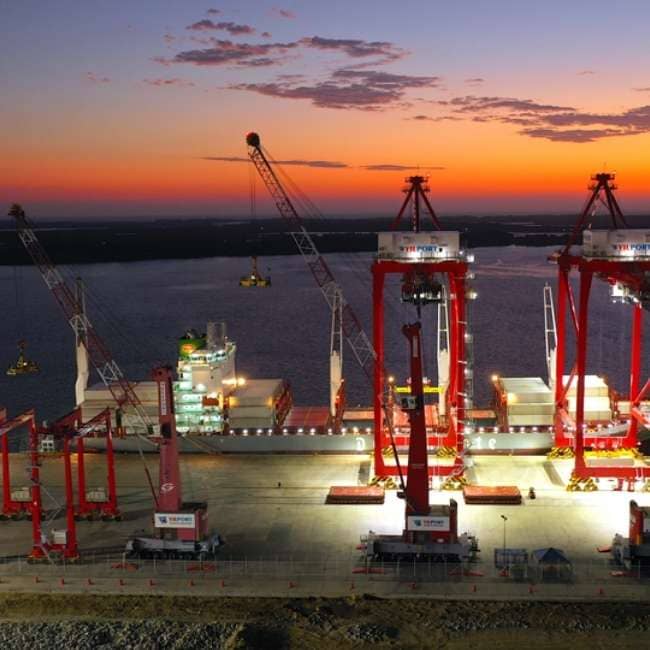
Refrigerated Containers Operation Efficiency: Yilport goes live with Reefer Runner
IDENTEC SOLUTIONS’ Reefer Runner, the world’s most advanced terminal-based reefer monitoring solution, went operational in December 2021 at Puerto Bolivar / Ecuador as part of Yilport’s initiative to boost productivity at their terminals worldwide.
While the COVID-19 pandemic disrupted the implementation of the system, the project team kept their cool and executed according to plan: "With our flexible system and a global team that will go the extra mile while being extremely accommodating to our customers' timeline and needs." Despite this extraordinary challenge, the go-live was completed on December 27th, 2021.”

Refrigerated Containers and Cargo Damage
Damage to refrigerated goods often results from a combination of small deviations – being without power for too long, slight temperature fluctuations, missed checks, or delayed responses. All of these gradually compromise product integrity long before anyone notices. This creates a difficult paradox for terminal operators: by the time damage becomes visible or measurable, the opportunity for prevention has already passed.
This article examines why traditional, inspection-based approaches can no longer keep pace with the growing volume of refrigerated cargo and its increasing sensitivity, and why transparency alone is no longer sufficient. It analyses how refrigerated cargo risks actually arise in terminal operations, where manual processes, infrastructure dependency, and time pressures intersect. Above all, it describes the shift from reactive measures to proactive prevention – where continuous data, intelligent alerts, and system-supported safeguards transform refrigerated cargo handling from a fragile process into a controlled, secure operation.
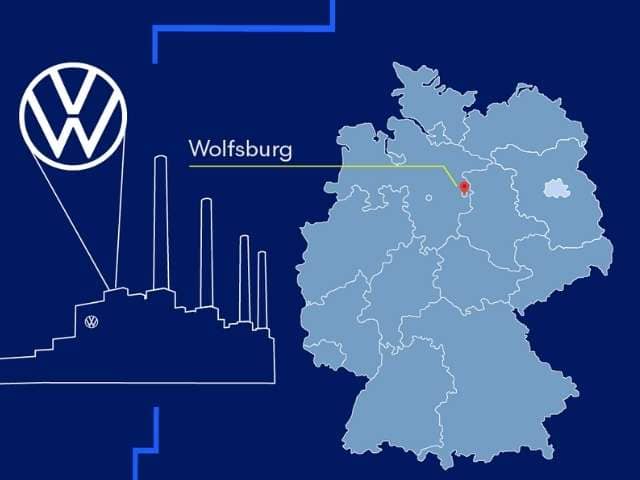
VW Autostadt Infographic
The Autostadt in Wolfsburg focuses on all aspects of mobility. The theme park and educational centre is one of the most popular tourist destinations in Germany. The Autostadt is also the world's largest new car delivery centre and home to the multi-brand ZeitHaus car museum.
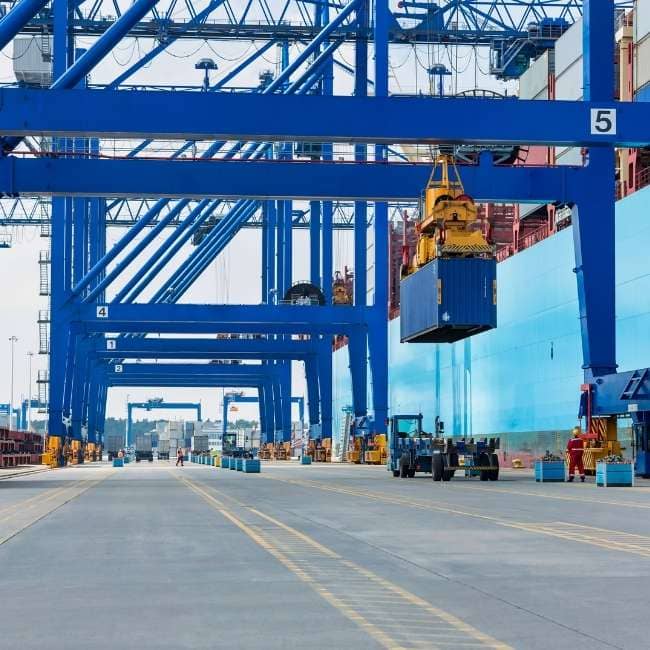
50 Container terminals worldwide
Big milestone for IDENTEC SOLUTIONS: Reefer Runner being installed / deployed at 50 container terminals is a major sign of success. Reefer Runner revolutionised the way refrigerated container management works today.
Fifty container terminals trust Reefer Runner because it works. Years ago, IDENTEC SOLUTIONS revolutionised how reefer monitoring was managed and developed a solution independent of reefer types, delivering data remotely, enabling energy monitoring without an additional power meter, and realising the first decarbonisation project (together with Siemens). But, most importantly, Reefer Runner is a solution that manages the entire process of reefer handling in ports, not just delivering data.
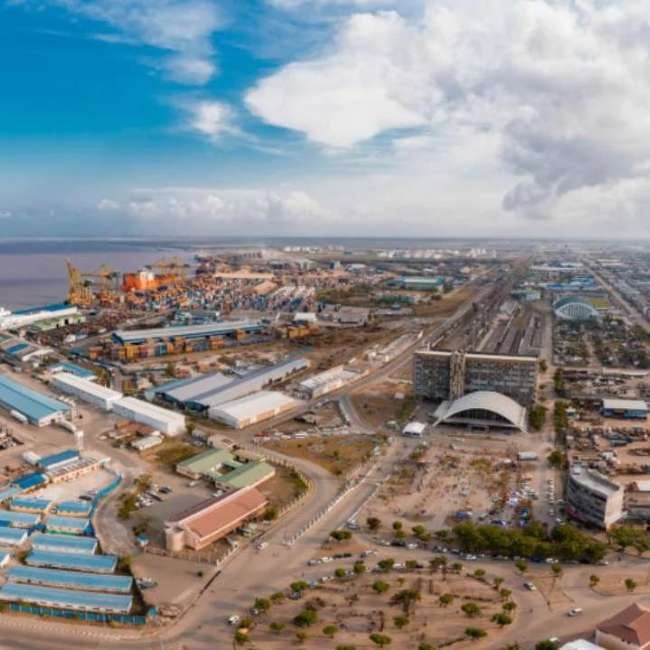
Reefer Runner in Mozambique
IDENTEC SOLUTIONS has secured a contract with Cornelder Container Terminal in Port of Beira, Mozambique, enhancing their refrigerated container handling and efficiency, with the implementation of 300 reefer plugs going live Q4 2023.
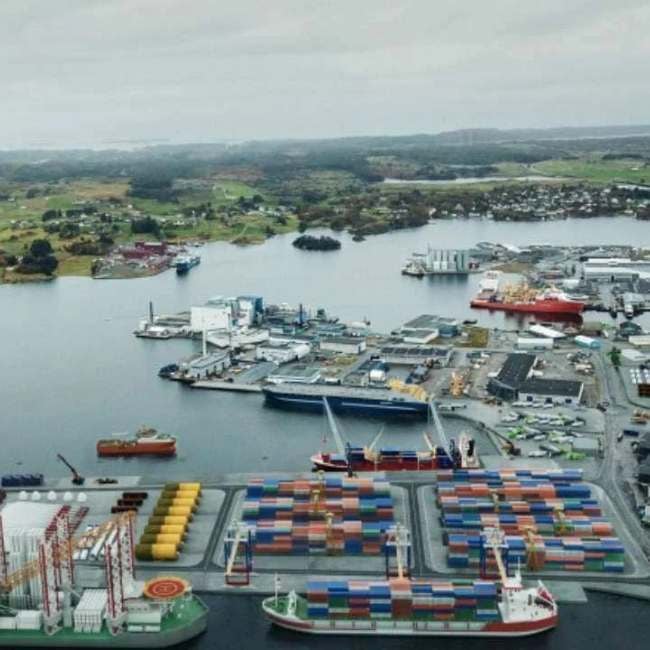
Reefer Runner in Norway
Norway’s seafood industry, a global leader in temperature-sensitive exports, depends on an advanced cold chain to maintain quality from ocean to market. As export volumes reach record highs, ports like Haugesund Cargo Terminal are embracing smart technologies such as Reefer Runner for automated, real-time reefer monitoring. These innovations ensure cargo integrity, reduce spoilage risks, and strengthen Norway’s position in international trade, supporting the growing demand for reliable, high-quality seafood worldwide.
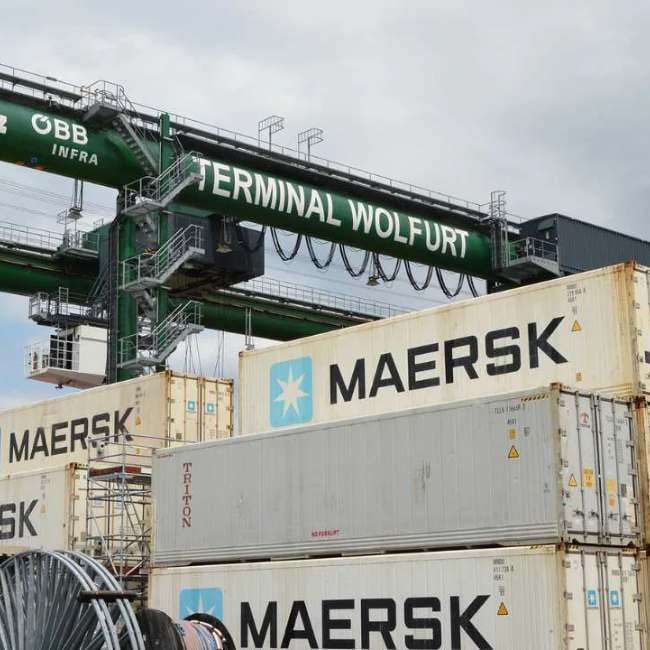
Reefer Runner in Austria
In refrigerated logistics, reliability is paramount; even the smallest temperature fluctuations determine the success or failure of a shipment. This is why the Wolfurt Freight Terminal in Austria is taking a pioneering role: It is the first rail terminal in Europe to introduce fully automated monitoring of refrigerated containers.
With Reefer Runner, the intelligent monitoring system from Identec Solutions, Terminal Wolfurt is proving that rail can meet the same high standards as road and sea when it comes to securing the cold chain. The result is more than just an innovation for Vorarlberg – it is a blueprint for sustainable, intermodal freight transport throughout Europe.

Reefer Runner in Rijeka Gateway
Rijeka Gateway is emerging as a new model for digitally driven, low-emission port operations on the Adriatic. Built as a greenfield terminal, it combines large-scale infrastructure, renewable energy, and integrated data systems from day one. At the heart of its cold-chain operations is Identec Solutions’ Reefer Runner, bringing real-time visibility, automation, and precise energy monitoring to refrigerated container handling.
Port of Hamburg: Showcase of a Successful Strategy
Situated at the river Elbe on Germany’s North Sea coast, Hamburg has been a major port since the 9th century. It is one of Europe’s largest ports and continues to be an important transit point for goods from all over the world. This article will explore the success of Hamburg’s port and show how flexibility and niche markets are part of it.